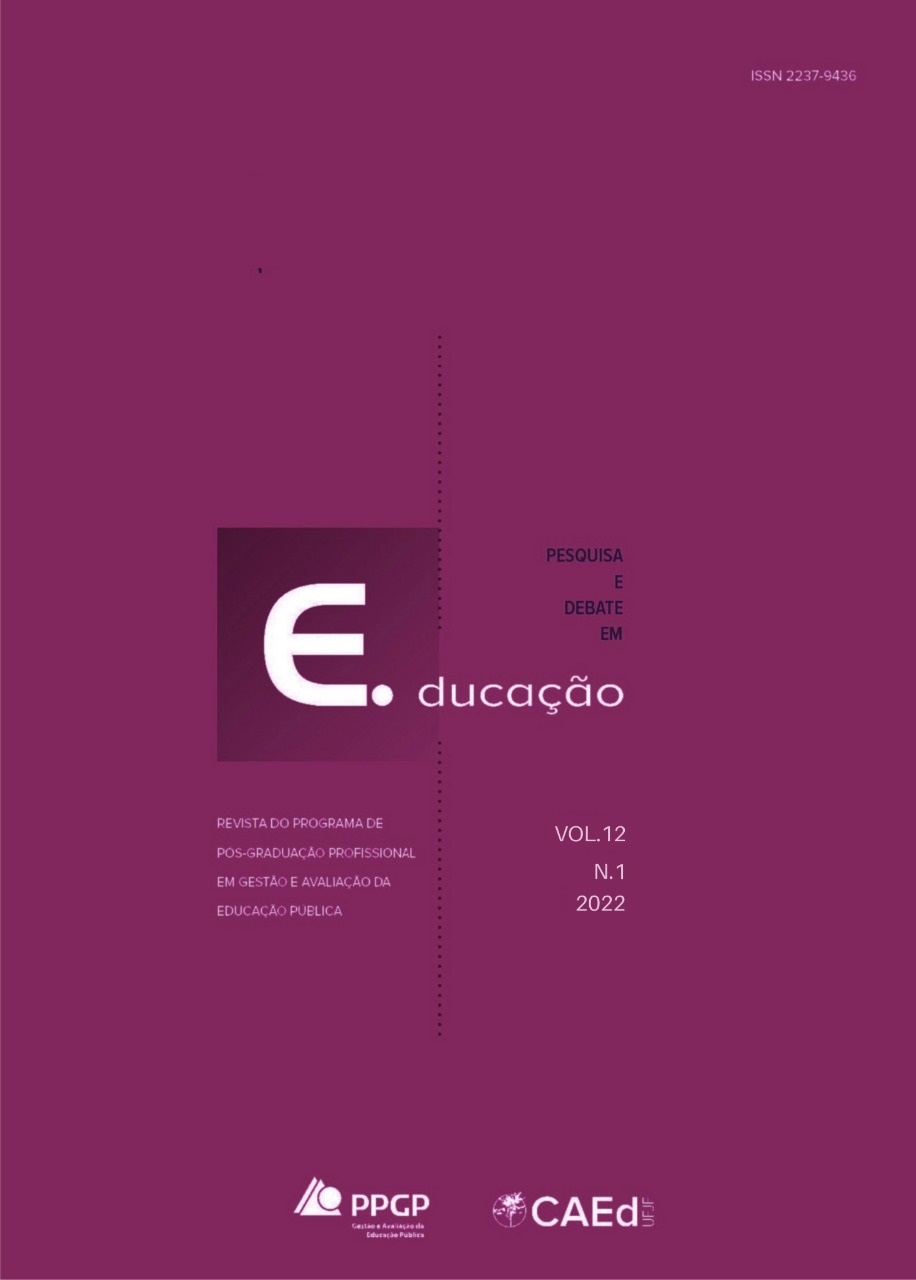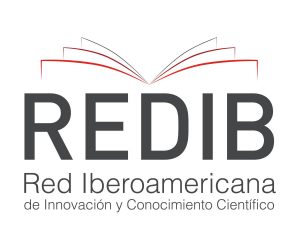Decolonize inclusive education
critical tasks for the destabilization of a neo-colonizing project
DOI:
https://doi.org/10.34019/2237-9444.2022.v12.35016Keywords:
Education, Inclusion, Epistemology, Decoloniality, TransformationAbstract
The political of inclusion and decoloniality dwells in the production of other devices of subjectivity, in the question for the redefinition of existence, in the creation of another coherent ontological scheme with the multiple passional forms of its inhabitants. The multiplicity is the main connector between both critical movements. In fact, one of its main critical tasks consists in interrupting the canonical modes of production of knowledge, contributing to a critical reading of the present, a task that from no one position is an agenda for the political. The objective of the work is to reveal how the most widespread discourse worldwide on inclusive education has been transferred without any measurement class to the geopolitical zone defined as Global South. This point informs us about a system of rationality developed by the Global North, reproducing the interests of the zone of being that imposes a pseudo-rationality that operates without objective references on its true index of singularity. Inclusive education is a conceptual elaboration that resides in the deepest depths of Eurocentrism. This link rests on the metaphor of the colonial difference that consolidates its cognitive apparatus through normative western epistemological frameworks. The work concludes by identifying that the decolonizing desire for inclusive education assumes the ethical purpose of documenting a singular act of ontological redefinition, and producing other existential forms. It opens up to the unpredictability of being from the multiplicity of singularities, challenging the subjectivities produced in the course of colonization. In addition, to focus your commitment in terms of: a) relational solidarity, b) transitive solidarity and c) creative solidarity.
Downloads
References
ALTBACH, Philip. “Education and Neocolonialism: A Note”, 1971; citado en MACÍAS, Karla. El neocolonialismo en nuestros días: la perspectiva de Leopoldo Zea. Universitas Philosophica, v. 32, n. 65, p. 81-106, 2015.
BRAIDOTTI, Rosi. Metamorfosis. Hacia una teoría materialista del devenir. Madrid: Akal, 2002.
BRAIDOTTI, Rosi. A Theoretical Framework for the Critical Posthumanities. Theory, Culture & Society, v. 36, n. 6, p. 31-61, 2018. Recuperado de: https://doi.org/10.1177/0263276418771486. Acceso: 13 jun. 2021.
CASTILLO, Karla. Claves teóricas en Manuel de Landa. Andamio, 40(17), 229-250, 2019.
FANON, Frantz. Piel negra, máscaras blancas. Madrid: Akal, 2009.
FLICK, Uwe. Introducción a la Investigación Cualitativa. Madrid: Morata, 1998.
GATIMU, M. W. RATIONALE for a critical pedagogy of decolonization: Kenya as a unit of analysis. Journal for Critical Education Policy Studies, v. 7, n. 2, p. 67-97, 2009.
GAZTAMBIDE-FERNÁNDEZ, Rubén. Decolonization and the pedagogy of solidarity. Decolonization: Indigeneity, Education & Society, v. 1, n. 1, p. 41-67, 2012.
HAAG, Diana. “Mechanisms of Neocolonialism: Current French and British in Cameroon and Ghana”, 2011; citado en MACÍAS, Karla. El neocolonialismo en nuestros días: la perspectiva de Leopoldo Zea. Universitas Philosophica, v. 32, p. 65, p. 81-106, 2015.
KAMENOPOULOU, Lida. Decolonising inclusive education: an example from a research in Colombia. Disability and the Global South, v. 7, n. 1, p. 1792-1812, 2020.
KOHN, Margaret. & MCBRIDE, Keally. Political Theories of Decolonization: Postcolonialism and the Problem of Foundations. Oxford: Oxford Scholarship, 2011.
LEE, Matt; FISHER, Mark. Deleuze y la brujería. Buenos Aires: La cuarentena, 2009.
MACÍAS, Karla. El neocolonialismo en nuestros días: la perspectiva de Leopoldo Zea. Universitas Philosophica, v. 32, n. 65, p. 81-106, 2015.
MACKINLAY, Elizabeth; BARNEY, Katelyn. Unknown and Unknowing Possibilities: Transformative Learning, Social Justice, and Decolonising Pedagogy in Indigenous Australian Studies. Journal of Transformative Education, v. 12, n. 1, p. 54-73, 2014.
MAWHINNEY, Janet. 'Giving up the ghost': Disrupting the (re)production of white privilege in anti-racist pedagogy and organizational change. Masters Thesis, Ontatio Institutue for Studies in Education of the University of Toronto, 1998.
MEMMI, Albert. The colonizer and the colonized. Boston, MA: Beacon Press, 1991.
MIGNOLO, Walter. Más allá de la postcolonialidad y subalternidad: Walter Mignolo y el giro decolonial, 2003. Recuperado de: http://biblio3.url.edu.gt/Publi/Libros/2013/Cartografia/07.pdf. Acceso: 13 jun. 2021.
MIGNOLO, Walter. “Capitalismo y geopolítica del conocimiento”; En: DUBE, Saurabh, DUBE, Ishita & Mignolo, Walter (eds.), Modernidades coloniales. (pp.227-255=. México: Colegio de México, 2004.
MIGNOLO, Walter. La idea de América Latina (la derecha, la izquierda y la opción decolonial). CyE. v. 1, n. 2, p. 1-26, 2009.
MIGNOLO, Walter. & WALSH, Catherine. On descoloniality. Concepts, analytics, praxis. Durham: Duke University Press, 2018.
NAKATA, Martín, NAKATA, Victoria, KEECH, Sarah & BOLT, Reuben. Decolonial Goals and Pedagogies for Indigenous Studies. Decolonization: Indigeneity, Education & Society, v. 1 n. 1, p. 120-140, 2012.
OCAMPO, Aldo. Epistemología de la educación inclusiva. Granada: UGR, 2017.
OCAMPO, Aldo. “Prólogo. Pedagogías de lo menor”; en: Ocampo, A. (Comp.). Pedagogías Queer. Santiago: Ediciones CELEI, 2018.
OCAMPO, Aldo. Contornos teóricos de la educación inclusiva. Revista Boletín Redipe, v. 8, n. 3, p. 66-95, 2019.
OCAMPO, Aldo. En torno al verbo incluir: performatividades heurísticas de la educación inclusiva. Quaest. disput, v. 13, n. 27, p. 18-54, 2020.
OCAMPO, Aldo. Sobre la noción ‘enredos genealógicos’ de la educación inclusiva. Revista Propuestas Educativas, p. 97-119, 2021.
ORLANDI, Eni. Análisis del discurso. Principios y procedimientos. Santiago: LOM/UMCE, 2021.
SANDOVAL, Chela. Methodology of the oppressed. Minneapolis, MN: University of Minnesota Press, 2000.
TUK, Eve; YANG, Wayne. Decolonization is not a metaphor. Decolonization: Indigeneity, Education & Society, v. 1, n. 1, 1-40, 2012.
YOUNG, Iris Marion. Justicia y política de la diferencia. Valencia: Cátedra, 2002.
ZEMELMAN, Hugo. Los horizontes de la razón. I. Dialéctica y apropiación del presente. México: Antrophos, 1992.
Downloads
Published
How to Cite
Issue
Section
License
Copyright (c) 2022 Aldo Ocampo González

This work is licensed under a Creative Commons Attribution 4.0 International License.




















